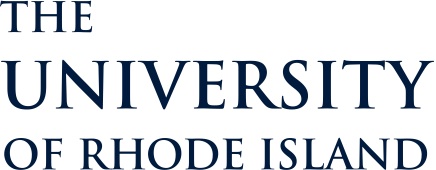For Immediate ReleaseFor Further Information: Roger LeBrun 874-2934Howard Ginsberg 874-4537Todd McLeish 874-7892 [email protected]
URI scientists to survey mosquitos for West Nile Virus at national parks
Project to focus on 16 parks in Northeast
KINGSTON, R.I. -- April 26, 2001 -- Two University of Rhode Island entomologists will spend the summer tracking mosquitos from Richmond National Battlefield Park in Virginia to Acadia National Park in Maine as part of a plan by the National Park Service to protect park visitors from West Nile Virus.
Howard Ginsberg, a research ecologist for the U.S. Geological Survey based at URI, and Roger LeBrun, professor of plant sciences, have been selected to conduct a survey of mosquitos and potential mosquito habitat in 16 national parks throughout the northeastern United States in an effort to track the expansion of West Nile Virus in the region. The project is a collaborative effort between URI and the University of Maryland/Eastern Shore.
"The National Park Service wants us to collect baseline information on the various species of mosquitos and mosquito habitats in the parks," explained Ginsberg. "They will then use the information to help them assess how big a problem West Nile Virus and other mosquito-borne diseases are so they can respond intelligently."
Mosquitos and their larvae will be collected at each park using a variety of trapping and sampling methods, and then they will be brought to URI for identification and testing. The parks will be visited three times each between May and September. The scientists will then determine the distribution of the mosquito species found in the region. This data can then be compared with future surveys to determine the changes in mosquito populations and the distribution of diseases like West Nile Virus.
According to LeBrun, there are 41 different species of mosquito found in Rhode Island, and many more in other parts of the country.Due to the labor intensive nature of the study, Ginsberg and LeBrun will be joined by Michelle Nevor, a URI graduate student from Islip, N.Y. who worked last summer with the Rhode Island Department of Environmental Management conducting mosquito surveys throughout the state. In addition, two undergraduate students will also assist in the project.
The URI researchers will survey Acadia National Park, Saratoga National Historical Park, Minute Man National Historical Park, Cape Cod National Seashore, Roosevelt/Vanderbilt National Historic Sites, Delaware Water Gap National Recreation Area, Fire Island National Seashore, and Gateway National Recreation Area.
The University of Maryland researchers will study Valley Forge National Historical Park, Assateague Island National Seashore, Chesapeake and Ohio Canal National Historical Park, the Capitol Region National Parks (two units), Prince William Forest Park, Fredericksburg and Spotsylvania National Military Park, and Richmond National Battlefield Park
A resident of Wakefield, Ginsberg was named Researcher of the Year in 1999 by the National Park Service for his role in assessing the disease risk associated with Eastern Equine Encephalitis and West Nile Virus at Fire Island National Seashore and Gateway National Recreation Area. He earned degrees from the State University of New York at Stony Brook and Cornell University.
LeBrun is director of the URI Laboratory for Invertebrate Pathology and has spent 25 years studying Eastern Equine Encephalitis and other mosquito-borne diseases. He recently received the Distinguished Achievement Award in Teaching from the Entomological Society of America and the URI Foundation's Teaching Excellence Award. He received degrees from Providence College and Cornell University. LeBrun lives in Kingston.
# # # # #
